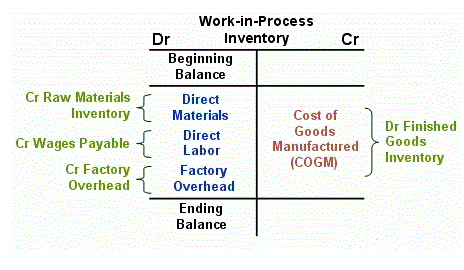
This includes the donor’s name, date of contribution, and the amount contributed. By keeping track of this information, the church can acknowledge the generosity of its members and provide accurate contribution statements for tax purposes. It is also essential to maintain consistency in your record-keeping practices. Train your staff or volunteers responsible for handling financial records on the proper procedures for documenting and organizing church accounting financial transactions. Regularly review and audit your records to ensure accuracy and identify any discrepancies or errors that may require attention. Work with the church accounting specialists at Jitasa to refine your financial management practices.
Church Chart Of Accounts Best Practices
- Additionally, consider organizing your financial records chronologically or by fiscal year.
- As the name implies, fund accounting consists of dividing your money into separate “funds.” These are groupings or “buckets” of funding, each of which is allocated for a specific use.
- Understanding the fundamental documents involved in church accounting will help maintain your financial records effectively.
- Ensure that all records are accurate and up to date to make the reporting process smoother.
- Church accounting software helps you get your church’s bookkeeping done quickly and accurately, so you and your administrative staff can get back to the things that matter most to your ministry.
In this resource, we’ve collected all of the major aspects and elements of church accounting. We’ll cover basic terminology and benefits, accounting methods and best practices in a church setting, taxes and regulations, and more. Also called an income statement or statement of operations, this statement summarizes the church’s revenues and expenses over a specific period, usually a month or a year. With a statement of activity, you can view income from tithes, offerings, donations, as well as investment income. You can also see a breakdown of church expenses like salaries, utilities, ministry expenses, and administrative costs.
Put the “Fun” in Fund Accounting in Your Church

Consider whether the structure will adequately support future growth or changes. You can always go back and add or change anything later on if needed. Run a few transactions through it to ensure everything flows as expected and accounts are categorized correctly. This can help catch errors or inefficiencies before full implementation.

Financial Statements
Every well-organized house needs a blueprint, and so does your church’s accounting system. This blueprint is called a chart of accounts, a categorized list of all the accounts used to track your church’s financial activity. By understanding these foundational aspects of church accounting, you’re well on your way to ensuring your ministry operates with financial responsibility and transparency.
Money coming in is designated as restricted and unrestricted funds. Unrestricted funds are used to cover balance sheet necessary operating expenses like salaries, rent, and utilities. Due to limited budgets, they may not be able to afford experienced bookkeepers.

Before you open the doors and hold a service, you must make a plan for managing the church’s income. Religious bookkeeping is not the same as managing revenue in a regular business because the goals are different. Where a business aims for profit, a church aims to carry out its mission. Churches aren’t looking at the bottom line; they’re looking at how they can serve Legal E-Billing others. When choosing the right bookkeeping software, consider factors such as ease of use, compatibility with your existing systems, and the level of support provided by the software provider.


Unless you’re at the very beginning of the church planting stage, you already have some kind of accounting solution in place, even if it’s just a spreadsheet. Keep these benefits in mind as you read through this and other resources. At the same time, proper accounting is a quiet, unobtrusive activity. It shines a light on ministry finances without making it the focal point. What are the benefits of truly investing in your church’s accounting?
Accounting for Fundraising and Donations
It will also provide a clear and organized view of your church’s financial health, which will help facilitate informed decision-making and ensure accurate financial reporting. Generating and maintaining clear, detailed church financial report records (donations, expenses, ministry fund allocations, etc) will build trust and accountability within your congregation. The percentage of your church members who tithe or give can feel confident their tithes are being used effectively and responsibly to support the church’s mission and vision.
